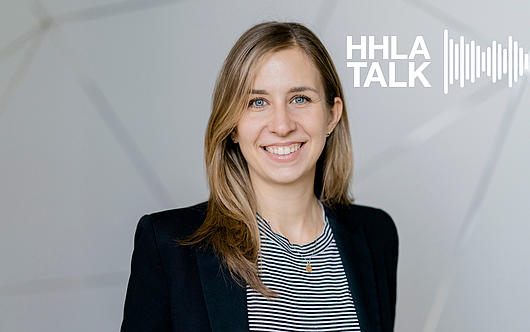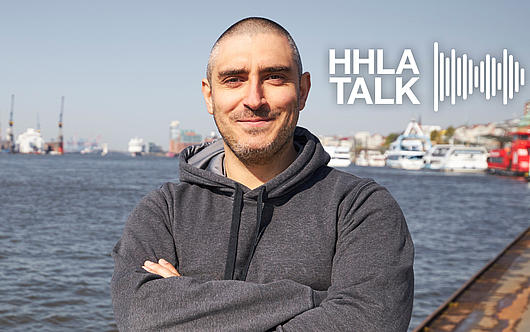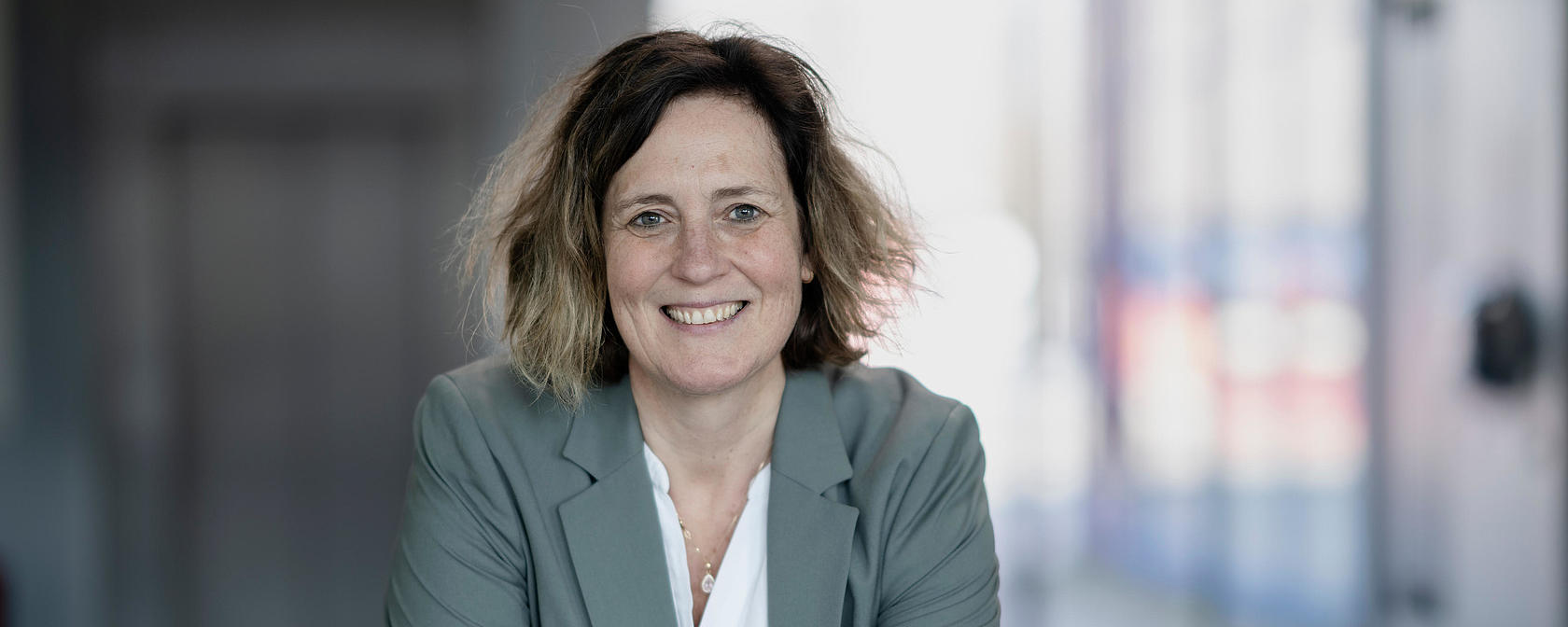
Lending a sympathetic ear is the most important tool in my work, says Tatjana Meichsner. “Along with a box of tissues,” she adds immediately. “Because emotions are often finding their way into my office.” Tatjana meets them with an impressively cheerful, optimistic nature. Although she often hears moving, difficult or complicated testimonies as a social and addiction counsellor, “my job is to show people that there is a way out. That’s why I take a very solution-oriented approach.”
The first thing she does is to really listen, not just keep her ears open. The people coming to her drop-in sessions find an open and approachable person sitting across from them. You can feel her empathy and her gaze is full of compassion. “Sometimes all my clients need is someone to really listen to them. They understand that their problems are taken seriously and their situation can be seen in a different light.” In most cases, listening is just the start of a much longer journey. And Tatjana is there to show the way.
In her conversations with her clients, they discuss together what the next stop should be on this journey. “Depending on the situation, I recommend various avenues,” she explains. “Working with our company doctors, I can refer them to specialists – usually psychiatrists or professional clinics dealing with addiction. In cases of bullying, our HHLA compliance or anti-discrimination officer can help. And then there’s also the debt counselling service offered by the Hamburger Verbraucherzentrale (Hamburg Consumer Organisation) if the problems are financial in nature.”
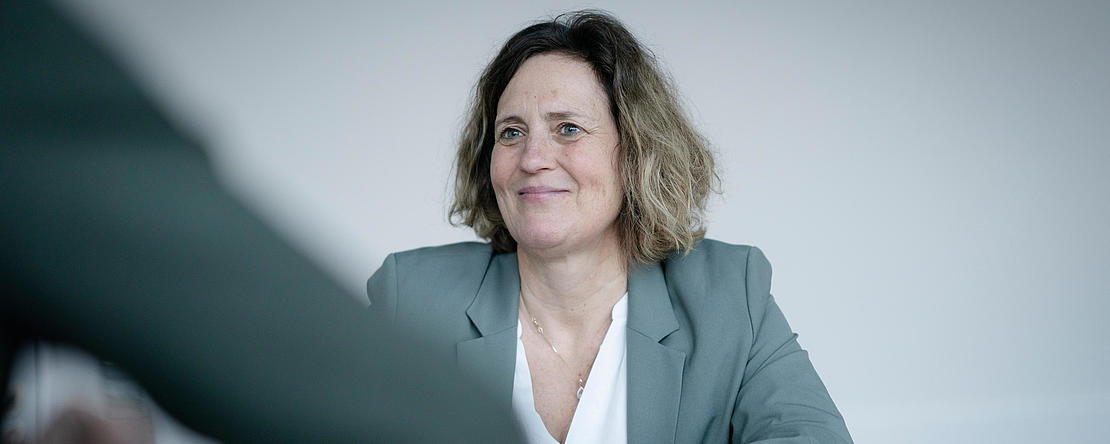
Employer enables quick psychological counseling
HHLA works with a wide range of institutions to ensure that appointments are available as quickly as possible. The partnership with the intervention agency “Insite” means that psychological assessments can be conducted very quickly – usually within 14 days – which is otherwise unheard of. The employer even pays for up to five sessions. The social counsellor’s advice almost always takes the form of recommendations. Clients attend her drop-in sessions voluntarily, which alternate between being held at the HHLA port terminals and in the Speicherstadt historical warehouse district. There is no pressure on them to take any particular course of action and Tatjana has a legal duty of confidentiality.
Certain cases relating to addiction are the exception. If the addiction is evident at work or it impacts the employee’s ability to work, the employee may be required to attend addiction counselling. The supervisors then have to become actively involved, including in order to protect colleagues. In such cases, there are precisely defined interventions that have been developed in partnership with the codetermination bodies. Tatjana also has a clear role in this action plan.

When people are in crisis, work can give them a sense of stability and normality.
Addiction counselling actually makes up a large part of what she does. Alcohol continues to be the number one drug, while the consumption of cannabis, cocaine and other drugs is on the rise. The most important topic for the people sitting opposite Tatjana, however, is increasing psychological stress. This is also reflected in the latest statistics from the health insurance association (see the following graphic). Stress can have very different causes. Tatjana’s clients may describe that they are no longer able to sleep, or that they have lost all motivation. Sometimes they have taken on too much, or they are not being treated fairly in the workplace. In other cases, terrible life events or all-consuming anxiety have led to their problems.
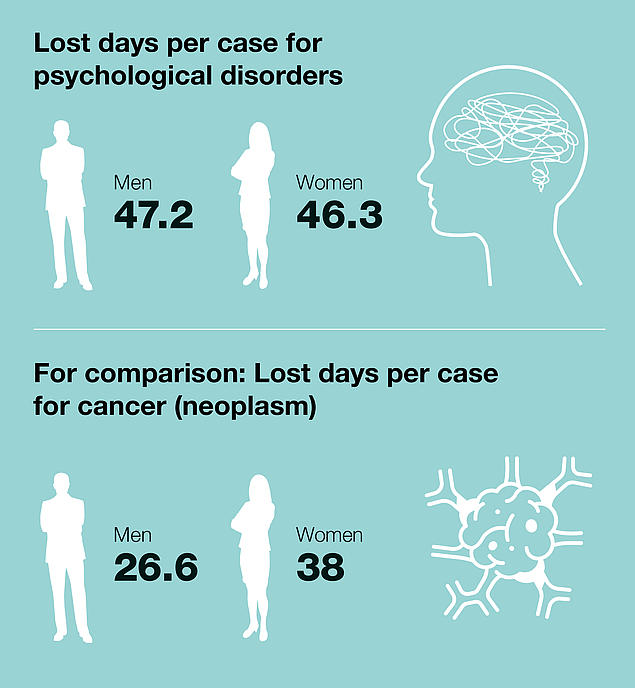
Mental illnesses
...are only the fifth most common type of diagnosis after respiratory illnesses (predominantly caused by coronaviruses), musculoskeletal conditions and other infections.
...However, they result in by far the most amount of time off work. Between 2002 and 2022, time off in German companies as a result of psychological and behavioural disorders increased by 220 per cent – more than for any other diagnosis!
There’s almost nothing that Tatjana Meichsner hasn’t heard and seen in her long career. Born in 1970, she studied Social Education at the University of Kiel, followed by Family Therapy. In her role, it's important that she continues learning, which is why this was followed by training in coaching and mediation. HHLA is currently paying for her course in “Guiding Mediation Processes Within Organisations”. This is important, Tatjana explains, because she is increasingly asked by teams to help them improve their internal cooperation and chemistry. After completing her studies, she worked for a long time as a psychosocial counsellor in the professional rehabilitation of people with mental illness. With this experience already under her belt, she switched to working at a specialist social counselling agency. The agency had a contract with HHLA. This is how she became familiar with the logistics company and how, in 2020, she was able to successfully apply for the position she holds today.
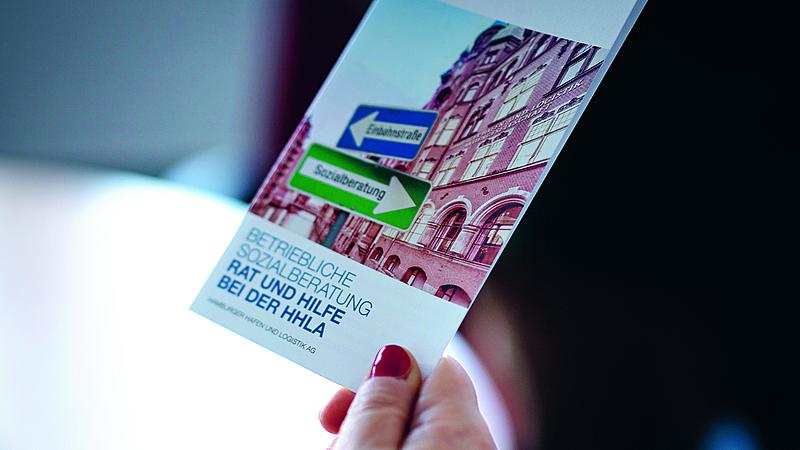
Not many companies offer such in-depth counselling services
Unlike HHLA, not many companies provide a standing social and addiction counsellor. A company is only as good as its employees, which is why we ensure they have access to the best-possible medical care. This brings a lot of advantages for both sides. After all, HHLA staff are the ones who are responsible for ensuring that logistics processes run seamlessly for the customers and are processed efficiently within the company. That’s why the company should not to have to go without their abilities and valuable experiences for long. “We also want to make the legally mandated assistance for the reintegration of employees after a period of illness lasting more than six weeks as professional as possible.”
“When people are in crisis, work can give them a sense of stability and normality,” Tatjana explains. “It’s in everyone’s best interests to keep time off to a minimum.” To make this happen, she may also talk to the employee’s team leader or manager. Could shifts be planned differently because only one parent is available for childcare after a difficult divorce? Or does a new job need to be found and do conditions need to be monitored?
For the social counsellor, the person and his or her health is always the focus. No one is forced to do anything; almost all assistance is completely voluntary. The appointments for her drop-in sessions are organised in such a way that clients do not bump into each other in front of her door. Everything is anonymous. Tatjana also offers training sessions for management staff.
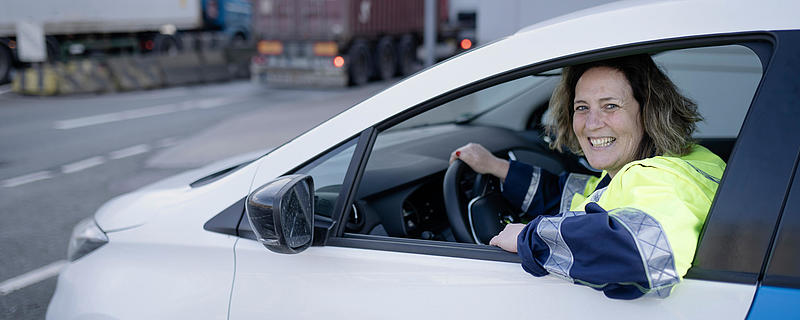
How should management staff deal with cases of addiction?
They learn, for example, how to handle instances of addiction, or when they must initiate the prescribed intervention chains. Tatjana certainly has a lot of tasks with great responsibility. “Sometimes it’s a lot but I do have time to relax from time to time,” she says. “It’s a great, very multifaceted job. I never know what I’m going to be faced with next. I’m usually able to maintain the required distance, despite feeling empathy.” If, despite her experience, she can’t see a way forward or needs assistance with dealing with difficult experiences herself, she can draw on a broad professional network and talk to the right people.
When having a difficult week, she is motivated by bumping into former clients who are now feeling much better. “Most of them, I never hear from again, which is totally OK,” she says. “It’s not easy for everyone to accept help or be reminded of hard times. But sometimes someone shakes my hand in the corridor to my office, or smiles at me in the canteen. And that’s a lovely reward!”
